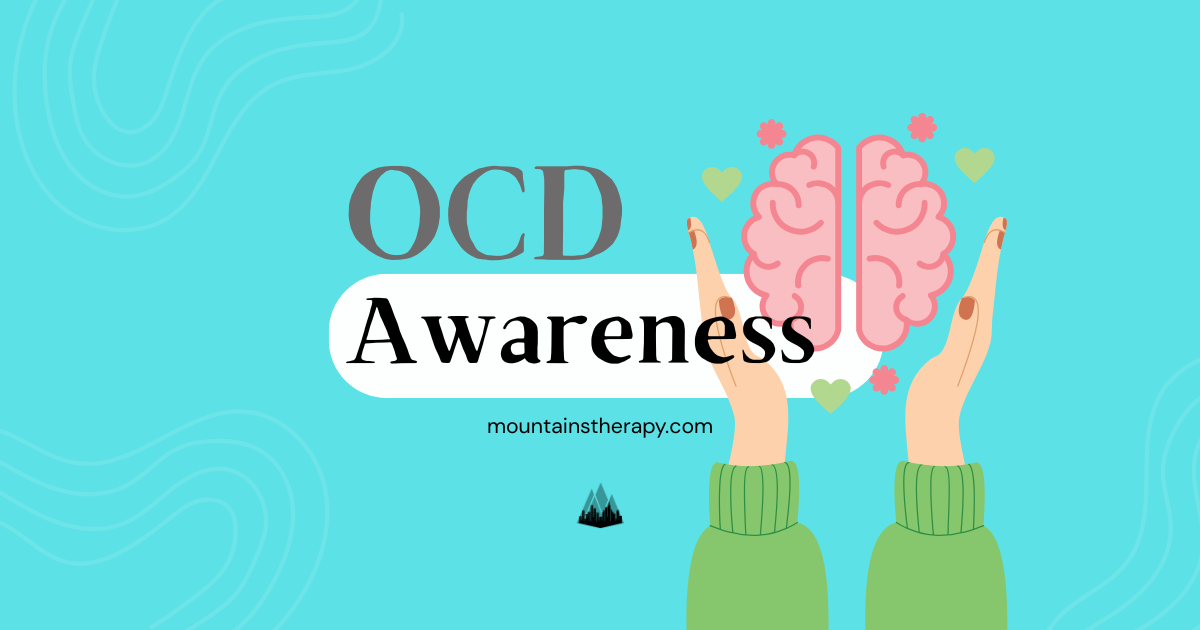How to Help People with OCD: Raise Awareness and Support OCD Awareness Week
Learn more about OCD therapy in Montclair, NJ.
In this blog, you’ll learn:
✅ WhatOCD awareness means and why it matters.
✅ How OCD develops and what factors contribute to it.
✅ How to identify common signs and symptoms of OCD.
✅ What personality traits are commonly associated with OCD.
✅ Effective strategies to manage and overcome OCD challenges.
✅ How to help people with OCD in compassionate, supportive ways.
✅ HowOCD affects relationships and how therapy can improve them.
OCD Awareness Week: Understanding and Taking Action
Obsessive-Compulsive Disorder (OCD) is often misunderstood, minimized, or mislabeled as simply being “neat” or “particular.” But for those who live with it, OCD can be exhausting and deeply distressing. That’s why OCD Awareness Week, held each October, is so important. It shines a light on what OCD really is, how it affects daily life, and how therapy can help.
What Is OCD Awareness?
OCD Awareness Week is a global effort to educate the public and reduce the stigma surrounding obsessive-compulsive disorder. The goal is to promote compassion, understanding, and access to effective treatment. The color for OCD awareness is teal, symbolizing hope, healing, and unity. The OCD awareness ribbon and OCD symbol serve as reminders that recovery is possible. So, when we ask, “What is OCD awareness?” It's more than a campaign. It’s a call to learn, advocate, and support those who are struggling silently.
How Does OCD Develop?
OCD can develop due to a combination of genetic, biological, and environmental factors. It often begins in adolescence or early adulthood but can appear at any age. People who are naturally conscientious, anxious, or sensitive to uncertainty are sometimes more prone to developing OCD. Stress, trauma, or major life transitions can also trigger symptoms. Understanding how OCD develops helps reduce shame and increases empathy for those experiencing it.
What Personality Type Is OCD?
While no single “OCD personality type” exists, people with OCD often share traits such as:
- Perfectionism and responsibility
- Strong attention to detail
- High standards for self and others
It’s important to note that OCD and Obsessive-Compulsive Personality Disorder (OCPD) are different. OCPD involves a chronic preoccupation with control and orderliness, while OCD centers around anxiety and compulsions. Is OCD a narcissistic trait? No OCD is not related to narcissism. It’s an anxiety-driven condition, not a personality flaw. Many well-known figures like Howie Mandel and Leonardo DiCaprio have shared their experiences with OCD, using their platforms to promote understanding.
What Is the Difference Between OCD and Anxiety?
OCD is a type of anxiety disorder, but it has distinct features.
- Anxiety often involves worry or fear.
- OCD includes:
- Obsessions - unwanted intrusive thoughts
- Compulsions - rituals or repetitive behaviors meant to reduce distress.
Someone with anxiety might worry about germs. Someone with OCD might wash their hands repeatedly until it feels “just right.” The difference lies in the intensity and the urge to neutralize the anxiety through compulsive acts.
What Are Three Signs of OCD?
Here are three common signs that may indicate OCD:
- Intrusive thoughts that cause distress or fear.
- Repetitive behaviors such as checking, counting, or cleaning.
- Avoidance of people, places, or situations that may trigger obsessions.
If these symptoms interfere with daily functioning, it may be time to seek help from a licensed therapist.
How to Use the 15-Minute Rule for OCD
The 15-minute rule for OCD is a self-help technique used to delay compulsions. When you feel the urge to perform a ritual, wait 15 minutes before doing it. Often, the anxiety begins to fade, teaching your brain that the fear will pass without needing to act on it. Over time, this strategy helps weaken OCD’s control, building confidence and resilience.
The 3 C’s, 4 R’s, 5 Rules, and 3-3-3 Rule for OCD
Here are simple frameworks that can help manage OCD:
- 3 C’s of OCD: Catch it, Check it, Change it.
- 4 R’s of OCD: Recognize, Reattribute, Refocus, Revalue.
- 5 Rules to Beat OCD:
- Label intrusive thoughts as OCD.
- Accept uncertainty.
- Resist compulsions.
- Refocus your energy.
- Practice self-compassion.
- 3-3-3 Rule for OCD: Look around and name 3 things you see, 3 sounds you hear, and move 3 parts of your body, a grounding exercise that brings you back to the present moment.
What Is the Hardest OCD to Treat?
The hardest OCD to treat is often Pure-O OCD (Pure Obsessional). Instead of visible compulsions, individuals experience mental rituals such as analyzing thoughts or seeking reassurance. Although this form is less noticeable, it’s very real and treatable through therapy that targets intrusive thinking patterns and response prevention.
What Kind of People Are Prone to OCD?
OCD affects people from all backgrounds, but research shows that individuals who are:
- Highly responsible or conscientious
- Sensitive to guilt or uncertainty
- Detail-oriented and rule-following
may be more prone to developing obsessive-compulsive patterns. However, these same traits can also support recovery when guided by a therapist who helps channel them into healthy coping tools.
What Is the Lucky Number for OCD?
Some people with OCD assign meaning to numbers such as a “lucky” or “unlucky” number as part of their compulsions. While there’s no scientifically lucky number for OCD, this behavior reflects how the brain tries to create control in uncertain situations.
How Therapy Helps With OCD
At Mountains Therapy in Montclair, NJ, our therapists help clients manage OCD with empathy, understanding, and proven therapeutic approaches, including:
- CBT – Cognitive Behavioral Therapy for OCD: Helps identify obsessive thoughts and change behavioral patterns.
- DBT – Dialectical Behavioral Therapy for OCD: Supports emotional regulation and mindfulness.
- ACT – Acceptance and Commitment Therapy for OCD: Encourages acceptance of uncertainty while living by your values.
- Mindfulness-Based Therapy for OCD: Builds awareness and reduces compulsive urges.
- Psychodynamic Therapy for OCD: Explores unconscious patterns that influence OCD behavior.
- TF-CBT – Trauma-Focused CBT for OCD: Addresses trauma that may contribute to obsessive thought patterns.
Take Action for OCD Awareness Week
This OCD Awareness Week, show support by wearing teal, sharing accurate information, and encouraging loved ones to seek professional help. If you or someone you care about is struggling with obsessive-compulsive behaviors or intrusive thoughts, therapy can help.
If you or someone you care about is struggling with obsessive-compulsive behaviors or intrusive thoughts, therapy can help.
- ✅
Individual Therapy for OCD
– Mountains Therapy provides Individual Therapy for OCD for clients in New Jersey, North Carolina, Florida, and Utah. - ✅
Online Therapy for OCD in NJ, NC, FL & UTD
– Mountains Therapy provides Online Therapy for OCD for clients in New Jersey, North Carolina, Florida, and Utah. - ✅
In-Person Therapy for OCD in Montclair, NJ
– Mountains Therapy provides In-Person Therapy for OCD in Montclair, NJ.
Together, we can raise awareness, build understanding, and help more people find hope and healing. 💙














